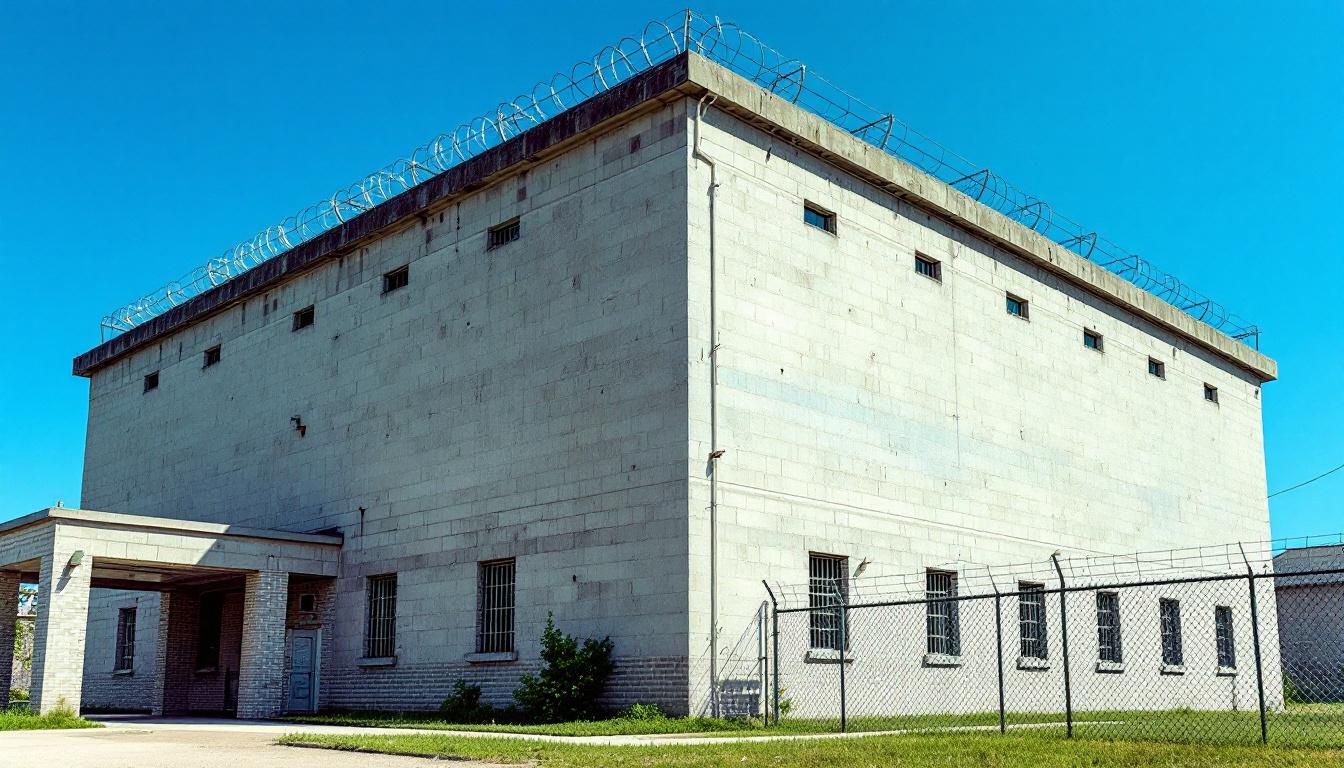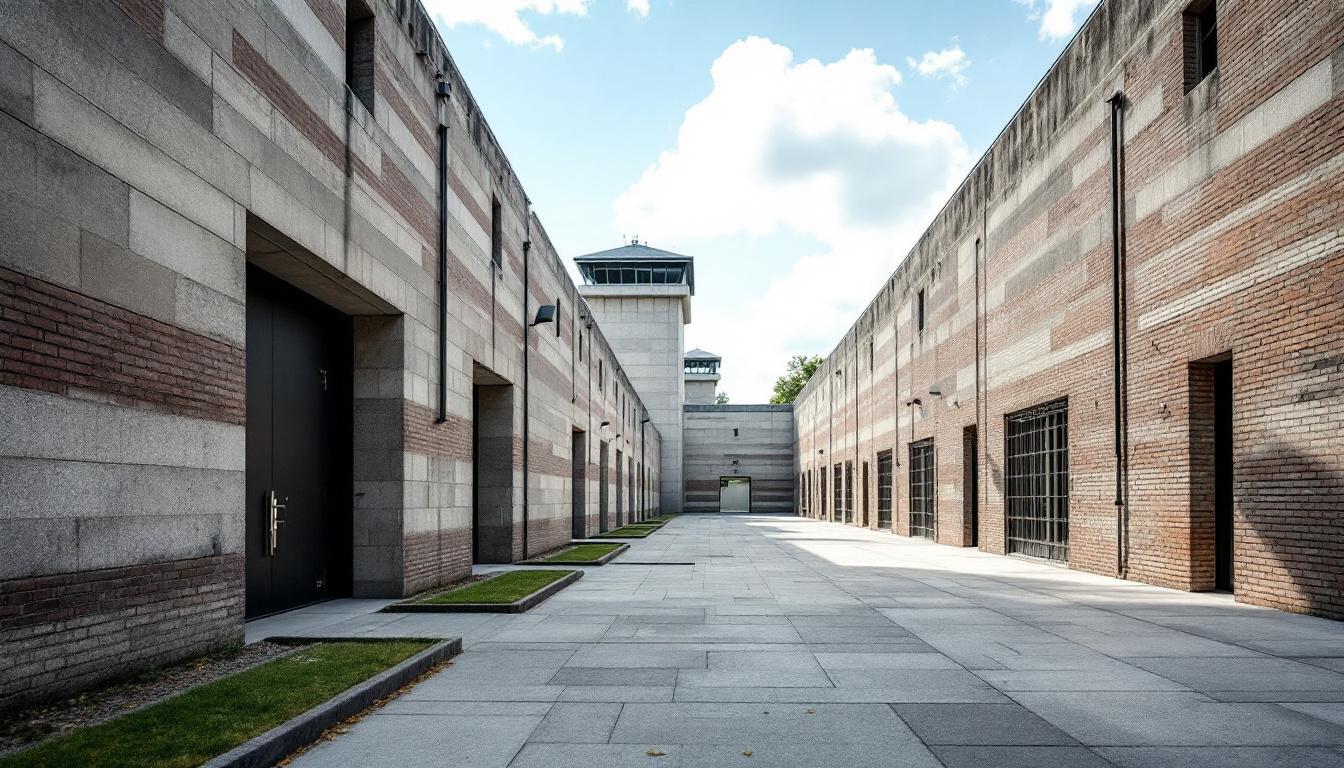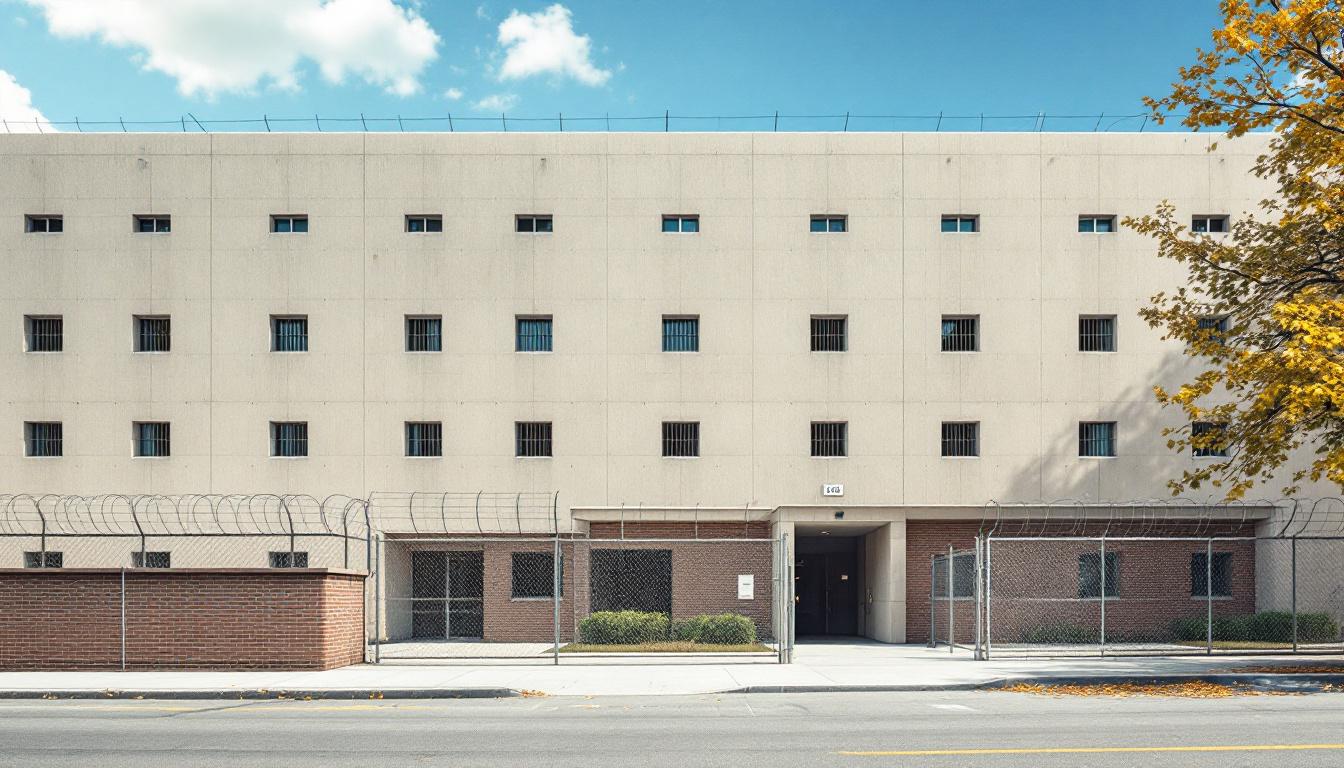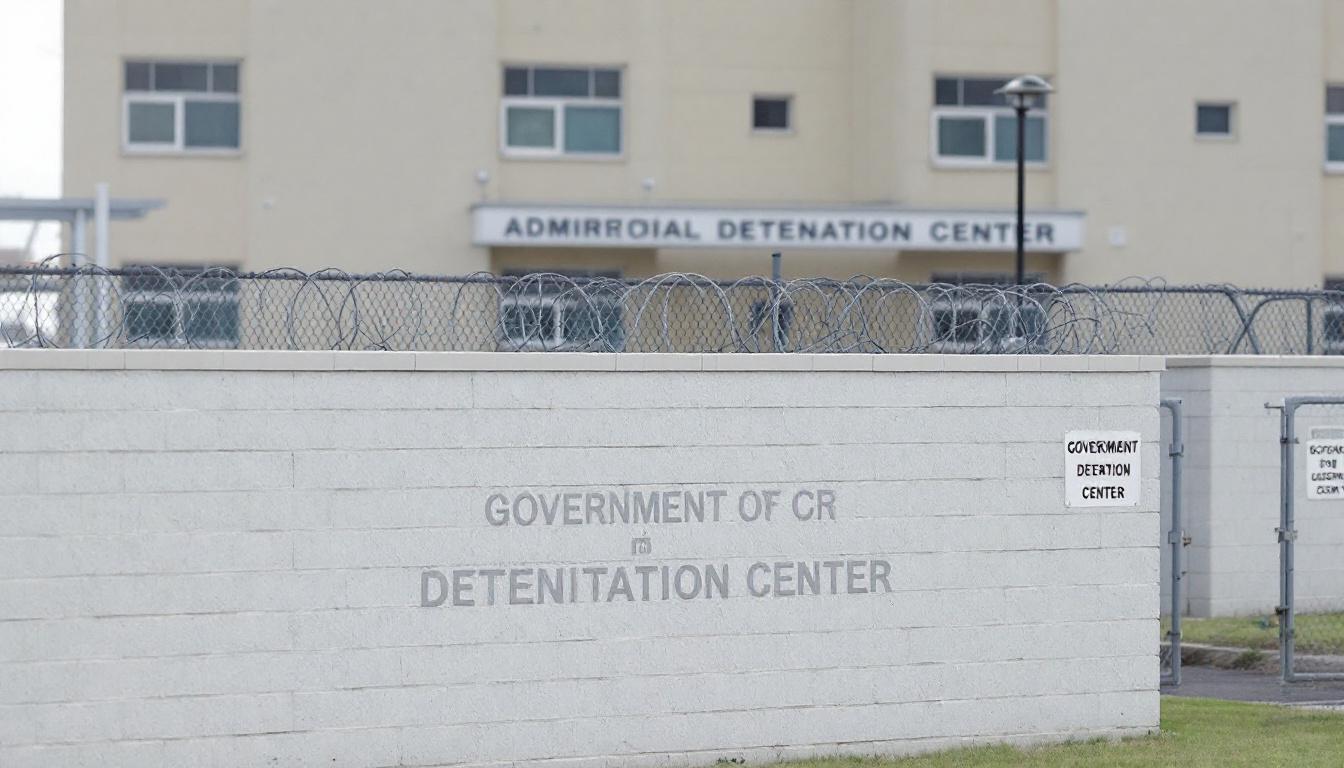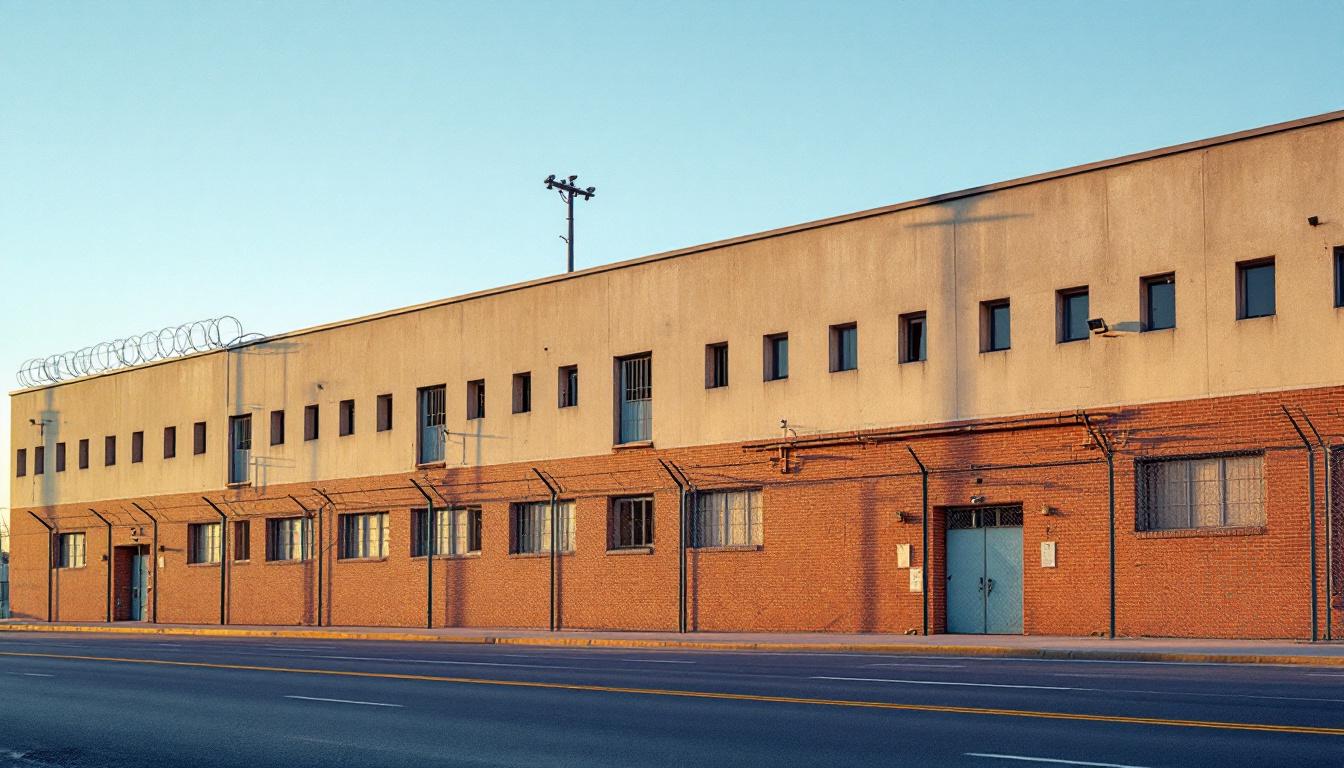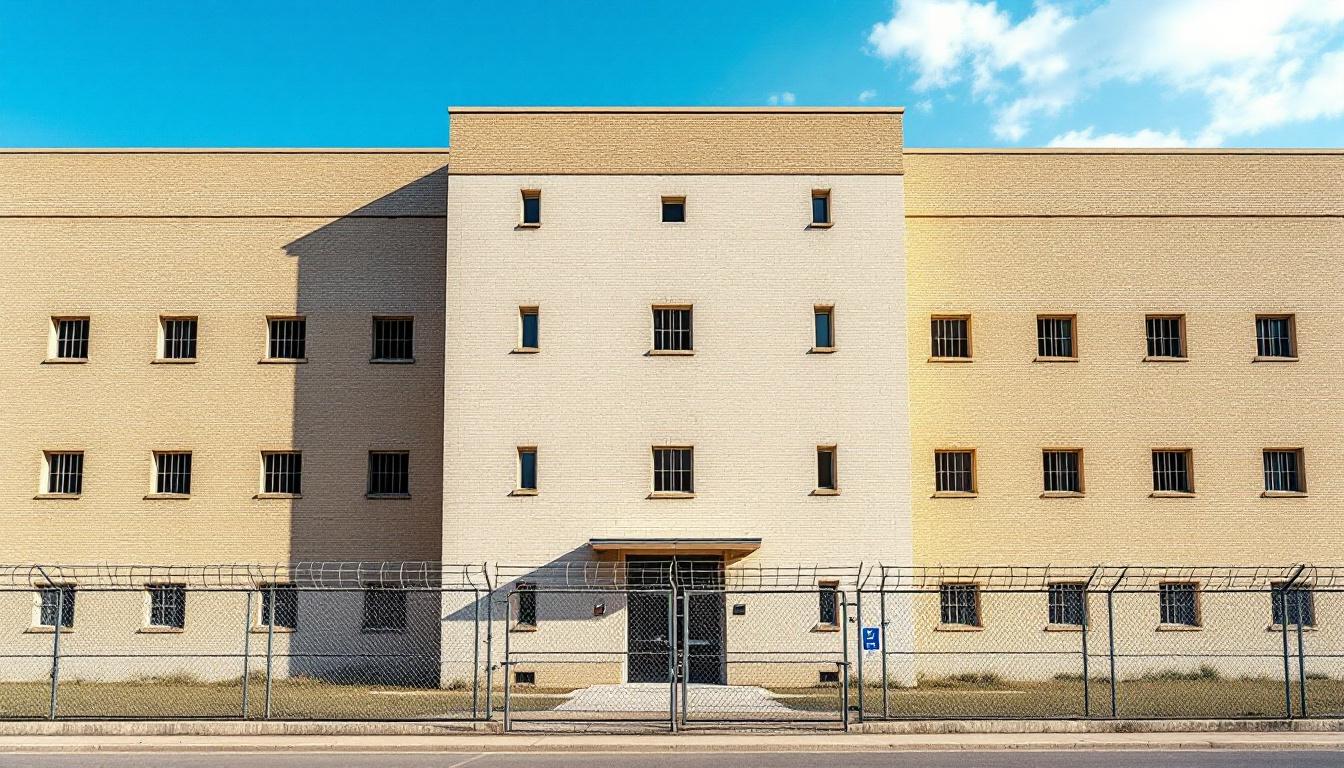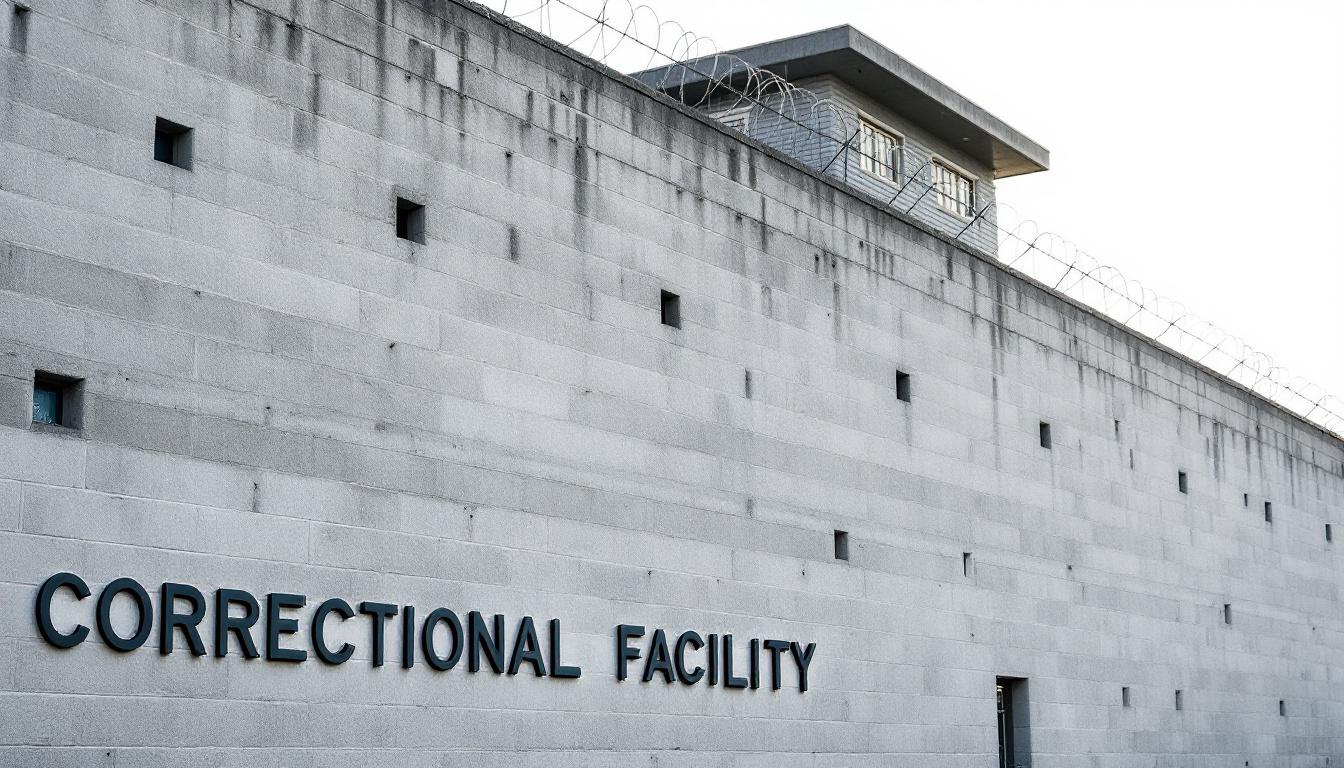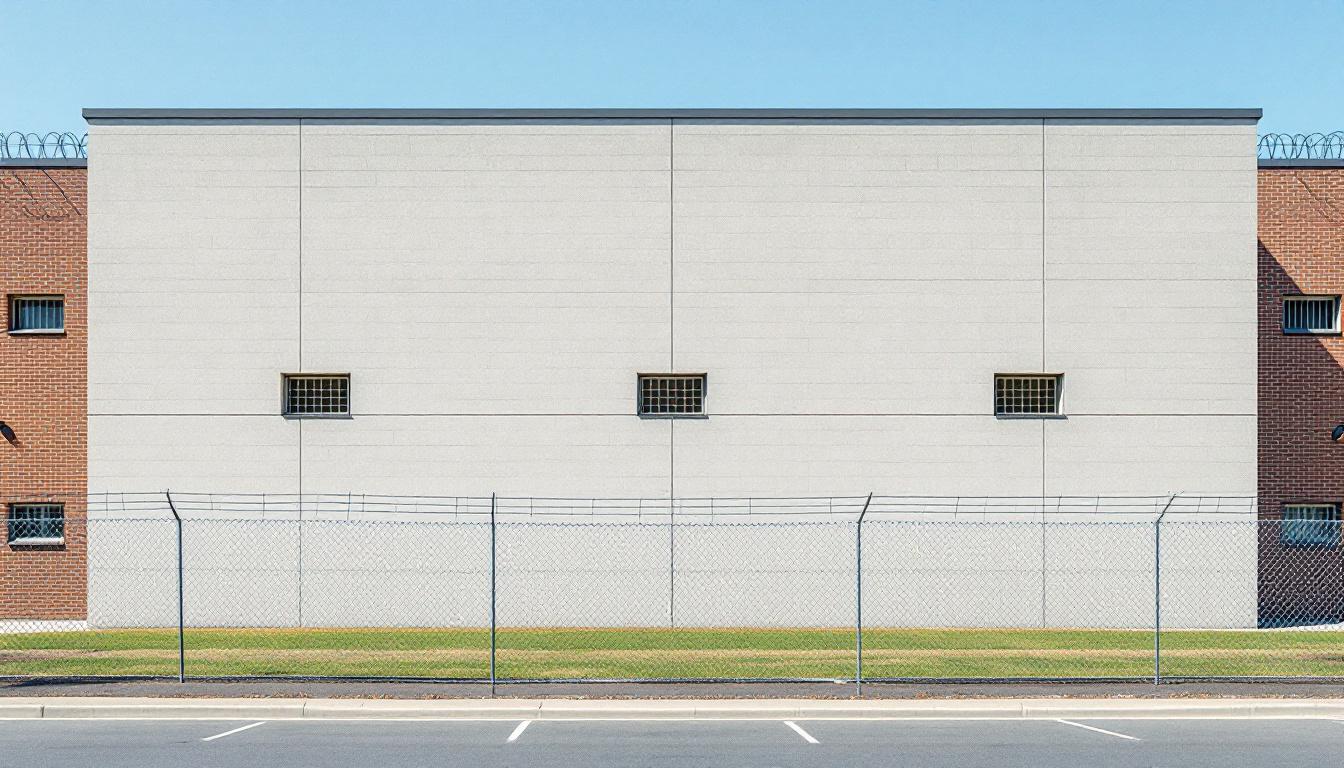
Quick Navigation
How to contact an inmate at Beaver County Sheriff's Office
This comprehensive guide will walk you through how to connect with an inmate at Beaver County Sheriff's Office. Follow the steps below to find an inmate and send letters and photos:
- Search for the inmate using our search tool below
- Create your account or log in to Penmate
- Write your message (up to 6,000 characters)
- Send instantly - inmates receive printed copies daily
Find an Inmate
Search for an inmate to start communicating today
Tip: You can search by first name, last name, or inmate ID number
To contact a person at Beaver County Sheriff's Office start by searching for the person on the official facility website. Perform a search by following these steps:
- Step 1: Enter their first name and last name into the search form and click "Search"
- Step 2: Locate their inmate record
- Step 3: Write down their Inmate ID and any housing information provided
Important! Be sure to enter the person's full name. Nicknames should not be used.
How to Send Messages to Inmates

You can use your phone or computer to send emails, letters, and photos to an inmate. Messages are sent electronically to inmate tablets or kiosks at the facility. If you would like to send a message, start by searching for an inmate at Beaver County Sheriff's Office.
Sending Photos and Postcards

A great way to send love and support to a loved one at Beaver County Sheriff's Office is to send photos and postcards. It only takes a few minutes to send photos from your phone and it makes a huge difference. You can also mail postcards with words of support and inspiration, or design your own postcard for special moments like birthdays and holidays.
Important! Be sure not to send any explicit photos or they may not be approved by the facility. You can also use a photo printing app like Penmate to make sure your photos are printed at the correct size (4x6 or 3x5) and are mailed according to the rules and regulations of Beaver County Sheriff's Office.
Frequently asked questions about Beaver County Sheriff's Office
-
How long does it take to deliver a message?
If you're sending an email message your letter is usually delivered within 24-48 hours. For messages sent via mail you should expect delivery within 3-7 days. All messages will need be approved by Beaver County Sheriff's Office.
-
How much does it cost to send a message to Beaver County Sheriff's Office?
You can send a message free using your phone or mail a message via USPS for the price of a $0.60 stamp and envelope. You can also purchase credits or e-stamps from services starting at $1.99.
-
What services can I use to contact an inmate at Beaver County Sheriff's Office?
Penmate
You can use Penmate to send letters and photos to an inmate from your phone. It's an easy way to stay in touch during your loved one's incarceration. Use the inmate locator to find an inmate's location and contact information, then you can send messages within a few minutes.
Securus messaging
Securus may be another option for communicating with an inmate at Beaver County Sheriff's Office. You can create a friends and family account and purchase credits to send messages. All messages will be reviewed and must be approved by the facility.
JPay
Some county jails and state prisons may support sending messages with JPay. You must register an account with the system, find your loved one, and purchase stamps to send messages. For some locations you can also attach photos.
Smart Jail Mail
You may also check if Smart Jail Mail is available at Beaver County Sheriff's Office. Smart Jail Mail is operated by Smart Communications and has contracted with some state and county jails. After purchasing credits, your messages and photos are sent to the facility, printed out, and then handed out to your loved one.
-
What is the mailing address of Beaver County Sheriff's Office?
Mailing address:
Beaver County Sheriff's Office
2270 S 525 W
Beaver, UT 84713
Phone: (435) 438-2862Business hours:
- Monday: Open 24 hours
- Tuesday: Open 24 hours
- Wednesday: Open 24 hours
- Thursday: Open 24 hours
- Friday: Open 24 hours
- Saturday: Open 24 hours
- Sunday: Open 24 hours
-
What are the visiting hours at Beaver County Sheriff's Office?
Visiting hours at Beaver County Sheriff's Office vary by housing unit and security level. Generally, visits are scheduled on weekends and holidays, with some facilities offering weekday visits. Contact the facility directly at (435) 438-2862 or check their website for the current visiting schedule. Visits typically last 30-60 minutes and must be scheduled in advance.
-
What items are prohibited when sending mail to Beaver County Sheriff's Office?
Prohibited items typically include: cash, personal checks, stamps, stickers, glitter, glue, tape, staples, paperclips, polaroid photos, musical or blank greeting cards, hardcover books, magazines with staples, and any items containing metal or electronics. Only send letters on plain white paper with blue or black ink. Photos must be printed on regular photo paper (no Polaroids). Always check with Beaver County Sheriff's Office for their specific mail policies.
-
How do I send money to an inmate at Beaver County Sheriff's Office?
You can send money to an inmate at Beaver County Sheriff's Office through several methods: 1) Online using JPay, Access Corrections, or the facility's approved vendor, 2) Money orders mailed directly to the facility with the inmate's name and ID number, 3) Kiosks located in the facility lobby, or 4) Over the phone using a credit or debit card. Fees vary by method, typically ranging from $2.95 to $11.95 per transaction.
-
Can I schedule a video visit with an inmate at Beaver County Sheriff's Office?
Many facilities now offer video visitation as an alternative to in-person visits. At Beaver County Sheriff's Office, video visits may be available through services like Penmate, Securus Video Connect, GTL, or ICSolutions. Video visits typically cost $10-20 for 20-30 minutes and must be scheduled in advance. You'll need a computer or smartphone with a camera and reliable internet connection. Contact the facility for their specific video visitation policies and approved vendors.
-
What identification do I need to visit an inmate at Beaver County Sheriff's Office?
All visitors must present valid government-issued photo identification such as a driver's license, state ID, passport, or military ID. Minors must be accompanied by a parent or legal guardian who can provide the minor's birth certificate. Some facilities require visitors to be on the inmate's approved visitation list, which may require a background check. Contact Beaver County Sheriff's Office for specific ID requirements and visitor approval procedures.
-
How can I find out an inmate's release date?
To find an inmate's release date at Beaver County Sheriff's Office, you can: 1) Use the online inmate search tool if available, 2) Call the facility's records department, 3) Contact the inmate's case manager or counselor, or 4) Have the inmate provide this information during a call or visit. For privacy reasons, some facilities only release this information to immediate family members.
Facility Overview
Contact Information
Beaver County Sheriff's Office2270 S 525 W
Beaver, UT 84713
Phone: (435) 438-2862
Official Website

About Beaver County Sheriff's Office
Nestled within the scenic mountain landscapes of southwestern Utah, the community of Beaver serves as home to Beaver County Jail, UT, a correctional facility that processes individuals through various stages of the local justice system. This UT correctional facility operates as an integral component of the region’s law enforcement infrastructure, typically handling pre-trial detainees, sentenced individuals serving shorter terms, and those awaiting transfer to other facilities within Utah’s broader correctional network.
The facility’s operational framework generally emphasizes structured daily routines designed to maintain security while providing residents services that may support their eventual reintegration into the community. Educational opportunities often form a cornerstone of programming, with basic literacy instruction and GED preparation commonly available to eligible participants. Additionally, the county jail typically offers substance abuse counseling and life skills workshops, recognizing that many individuals entering the system may benefit from addressing underlying challenges that contributed to their legal circumstances.
Within Utah’s regional corrections network, Beaver County Jail functions as a local hub that coordinates with state-level facilities and neighboring county systems to ensure appropriate placement and resource allocation. The facility’s mountain region location presents comprehensive logistical considerations, as staff must often navigate seasonal weather patterns and geographic distances when facilitating court appearances, medical appointments, and family visitation. This positioning requires careful coordination with transportation services and communication systems to maintain connections between residents and the broader legal and social support networks essential to the rehabilitation process.
Programs & Services
Educational initiatives form the cornerstone of rehabilitation efforts, with comprehensive programming designed to address the diverse academic needs of residents. The facility typically operates under a philosophy that views education and skill development as fundamental pathways to successful community reintegration. Through carefully structured learning environments, residents may access opportunities that extend far beyond basic literacy, encompassing both formal academic instruction and practical life skills training that addresses the multifaceted challenges they often face upon release.
Academic programming may deliver services ranging from basic literacy instruction to high school equivalency preparation, while vocational training initiatives often focus on developing marketable skills in various trades and industries. These educational components typically emphasize hands-on learning experiences that allow residents to build confidence alongside competency. In addition to this foundational academic work, vocational initiatives may include training in areas such as food service, maintenance, or computer skills, providing residents with concrete employment prospects that can support their transition back into the community.
Therapeutic communities represent a significant component of the facility’s rehabilitation approach, creating structured environments where residents can engage in intensive personal development work. The facility may offer dual diagnosis treatment services that address both substance abuse issues and underlying mental health conditions, recognizing the complex interplay between these challenges. In addition to this clinical programming, peer support groups often provide ongoing encouragement and accountability, while domestic violence programs typically address the specific trauma and behavioral patterns that may have contributed to residents’ involvement in the justice system.
Daily Life & Visitation
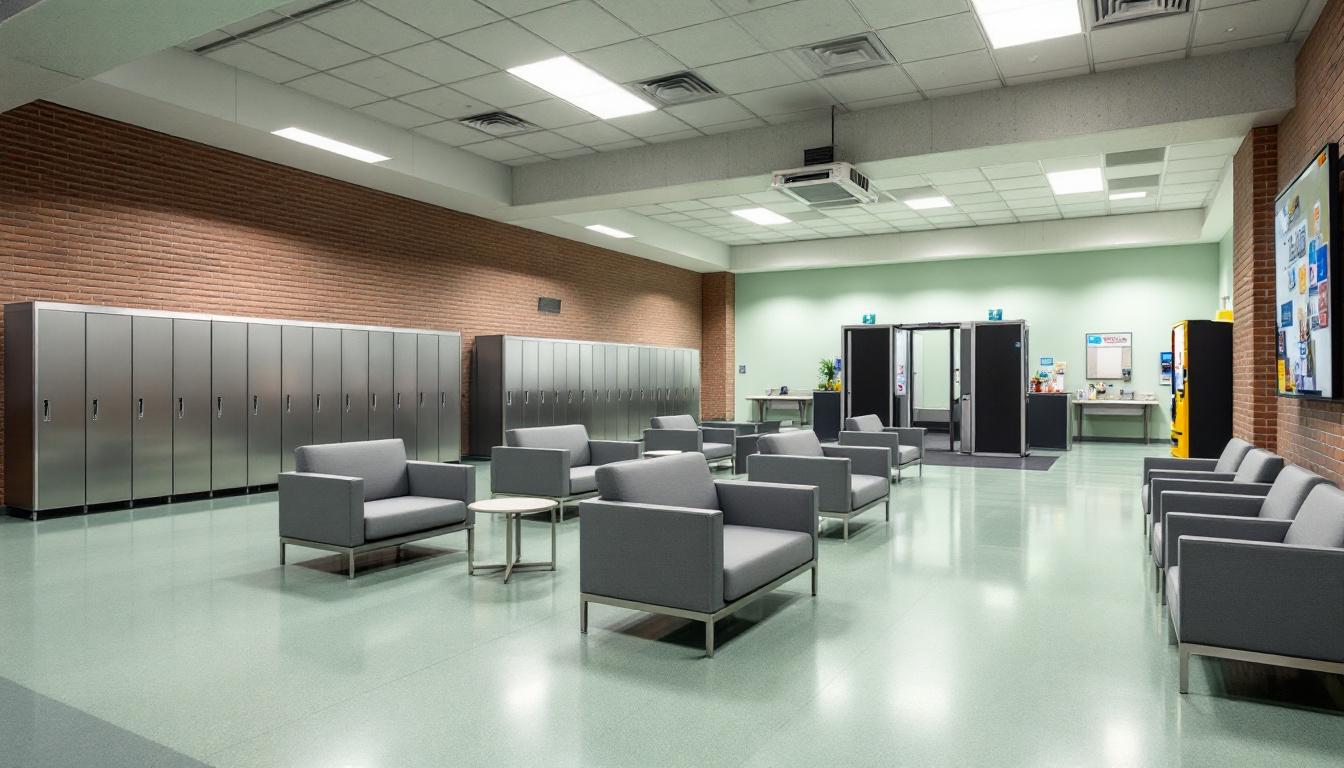
The rhythmic cadence of scheduled activities begins early each morning, as residents at Beaver County Jail consistently follow a structured routine that delivers predictability throughout their day. Today, as with every day, the facility operates on a carefully organized schedule that typically includes designated times for meals, recreation, programming, and rest periods, creating an environment where residents generally know what to expect from one hour to the next. This consistent framework usually helps individuals adapt to their temporary circumstances while maintaining a sense of order and purpose during their stay.
Living accommodations within the facility are designed to house residents in dormitory-style units or individual cells, depending on classification levels and available space. Residents typically receive basic bedding, personal hygiene items, and are allowed to keep approved personal property within established guidelines. Meals are generally served in a central dining area or delivered to housing units, with menus that usually meet basic nutritional requirements and accommodate common dietary restrictions. In addition to this daily structure, residents may access the commissary system to purchase additional approved items, helping them maintain some personal choices within the controlled environment.
The facility typically offers various recreational opportunities that may include outdoor exercise time, indoor activities, and access to reading materials or television programming during designated hours. Work assignments often provide residents with opportunities to contribute to facility operations while developing or maintaining job skills, though specific positions usually depend on security classification and facility needs. Despite this structured environment, the facility generally maintains policies that allow for regular family contact through scheduled visitation periods and telephone privileges, helping residents preserve important relationships during their stay. Programming schedules may include educational opportunities, counseling services, or other structured activities designed to support residents’ well-being and preparation for their eventual release.
Ready to Connect?
Start communicating with your loved one today
Search for an Inmate
